Israeli tanks roll into West Bank first time in 20 years as prelude to forcible annexation
By Maryam Qarehgozlou
In the dimly lit basement of a building in the occupied West Bank city of Jenin, a family huddled together as their home transformed into a war-ravaged prison, the deafening rumble of advancing tanks shaking the ground beneath them and bombs raining down from above.
A distraught mother clutched her children tightly, her heart weighing down with worry and fear. Her husband tried to calm the situation, while old grandparents leaned on one another for comfort.
For years, they witnessed relentless attacks from the Israeli occupying forces. They watched helplessly as their city crumbled around them, their friends and neighbors vanishing into thin air.
However, over the past month, the Israeli military has intensified its aggression in the occupied West Bank, reaching a climax with the recent deployment of tanks in Jenin – the first such occurrence since it launched a bloody crackdown on Palestinians during the Second Intifada (2000-2005).
Failing to achieve any stated military objectives, including the “elimination” of Hamas in Gaza, despite a 15-month-long genocidal onslaught on the besieged territory, Israel was ultimately compelled to accept a ceasefire agreement based on longstanding negotiation terms set forth by Hamas.
Following the humiliating outcome in Gaza and the subsequent truce on January 19, the Israeli regime shifted its focus to the occupied West Bank, beginning its attacks on the city on January 21.
Israel expands offensive in northern West Bank, deploys tanks to Jenin@AssiTeebah reports from Jenin.
— Press TV 🔻 (@PressTV) February 25, 2025
Follow Press TV on Telegram: https://t.co/boCY50qN7H pic.twitter.com/uwav5BalX0
What is Israel doing in the occupied West Bank?
Over the past 36 days, Israeli occupation forces have been raiding Palestinian homes, using bulldozers to destroy vital infrastructure, with particular focus on the northern regions of Jenin and Tulkarem.
The occupation forces have also raided further south in the occupied West Bank, hitting Kobar and Silwad north of Ramallah, the Beitunia neighborhood of Ramallah, and al-Khalil.
Palestinians say the regime is employing war tactics in the occupied West Bank, similar to those previously used in Gaza, as evidenced by the military’s deployment of tanks, widespread destruction in the Jenin refugee camp, carving out of roadways and plans to establish a base.
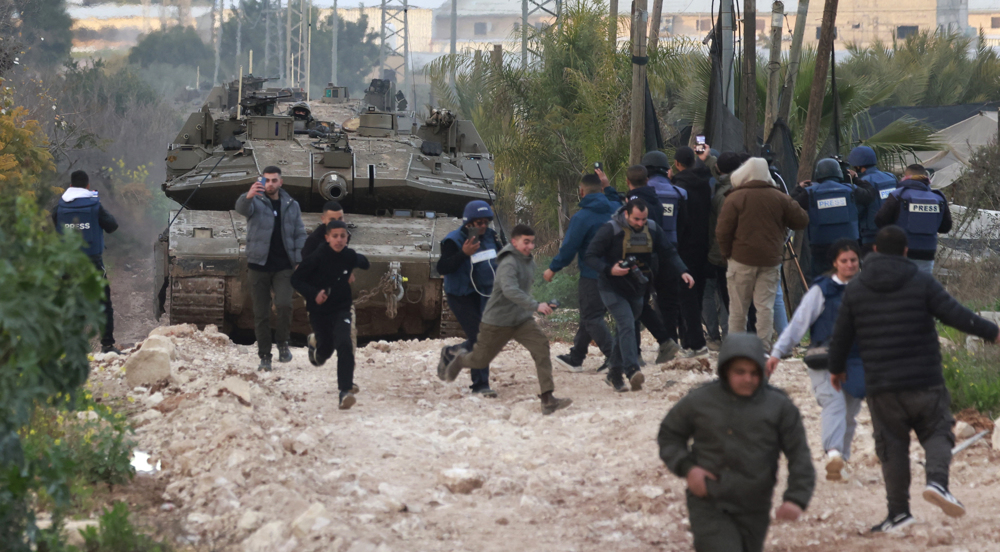
Jenin Mayor Mohammed Jarrar last week condemned the Israeli army’s adoption of “a pattern of random destruction” in the camp and its surroundings, effectively rendering the area “uninhabitable.”
Reports indicate that over 40,000 Palestinians have been forcibly uprooted from their homes in the refugee camps of Jenin, Tulkarem, Nur Shams, and Al-Fara’a – marking the largest displacement in the occupied West Bank since the 1967 war when Israel occupied territories west of the Jordan River, including East al-Quds and the Gaza Strip.
The forcibly displaced Palestinians are now living in dire conditions in makeshift accommodations in overcrowded schools and mosques in the occupied city.
Nihad al-Shawish, head of the Nur Shams camp services committee, spoke about the plight of remaining residents in the refugee camp, who are trapped and struggling to access essential resources.
“The Civil Defence, the Red Crescent, and the Palestinian security forces brought them some food yesterday but the army is still bulldozing and destroying the camp," he said last week.
According to the Israeli advocacy group Physicians for Human Rights (PHR), there is a dire shortage of food, power, and medical supplies in the occupied West Bank and the Israeli army is “obstructing Red Crescent vehicles and humanitarian services, delaying their ability to provide first aid or transport patients to hospitals for treatment.”
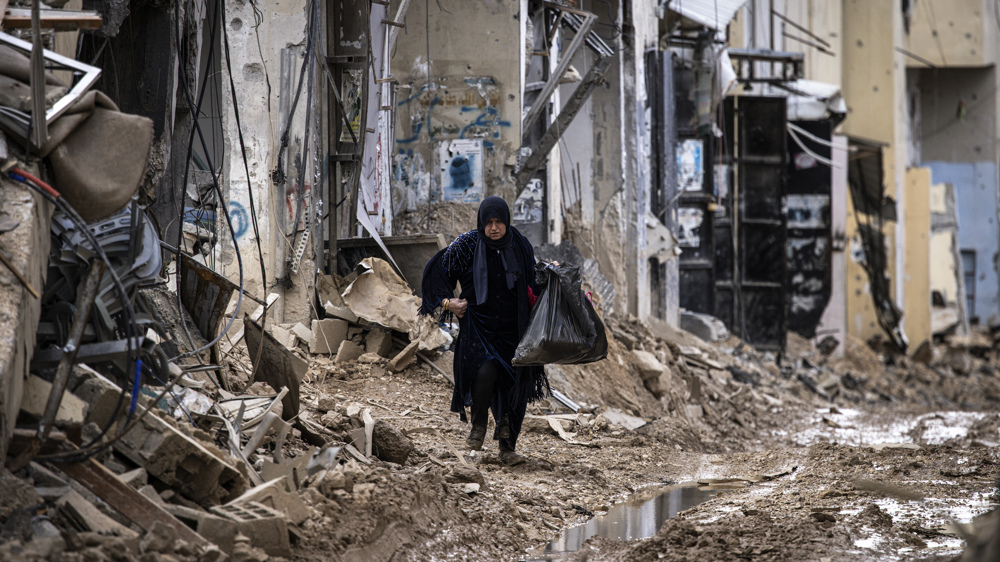
Since January 21, the besieged Palestinian refugee camps of Jenin and its adjoining areas have witnessed a steep rise in the death toll, with at least 27 Palestinians, including children, losing their lives in the face of relentless Israeli military aggression.
The ongoing offensive in Jenin and its neighboring refugee camp has also resulted in scores of injuries, the abduction of over 160 individuals, and widespread devastation, including the complete demolition of hundreds of residential properties and the partial destruction of thousands of homes.
The recent blockade in the Jenin camp marks the culmination of weeks-long siege tactics, initially implemented by Palestinian Authority forces and subsequently enforced by the Israeli military.
These iron-fist measures have resulted in severe limitations on the movement of residents and the cutting off of essential resources such as water and electricity to the camp.
Established as a sanctuary for descendants of Palestinian refugees displaced during the 1948 Nakba following the illegal formation of Israel and subsequent occupation of Palestinian territories, these camps have long served as pivotal strongholds for resistance groups fighting Israeli occupation.
The occupied West Bank, with approximately 3.3 million Palestinian inhabitants, has roughly one million more residents than the besieged Gaza Strip.
Over the years, the camps have been repeatedly targeted by the occupation army. Since the war in Gaza began on October 7, 2023, Israel has increased the deadly force it uses in the occupied West Bank, using helicopters and drones to terrorize locals.
However, the current large-scale attacks and deployment of tanks, initiated as a ceasefire agreement was brokered in the besieged and bombarded Gaza Strip, marks an unprecedented escalation.
Viral footage from the Jenin camp on social media shows Palestinian youth and children, armed only with stones, hurling them at advancing Israeli military tanks.
In one such instance, a young Palestinian's resistance was met with a show of brute force as one tank operator trained its cannon and turret on him and others. Within moments, tear gas engulfed the scene, scattering the group of young men and children who had gathered in defiance.
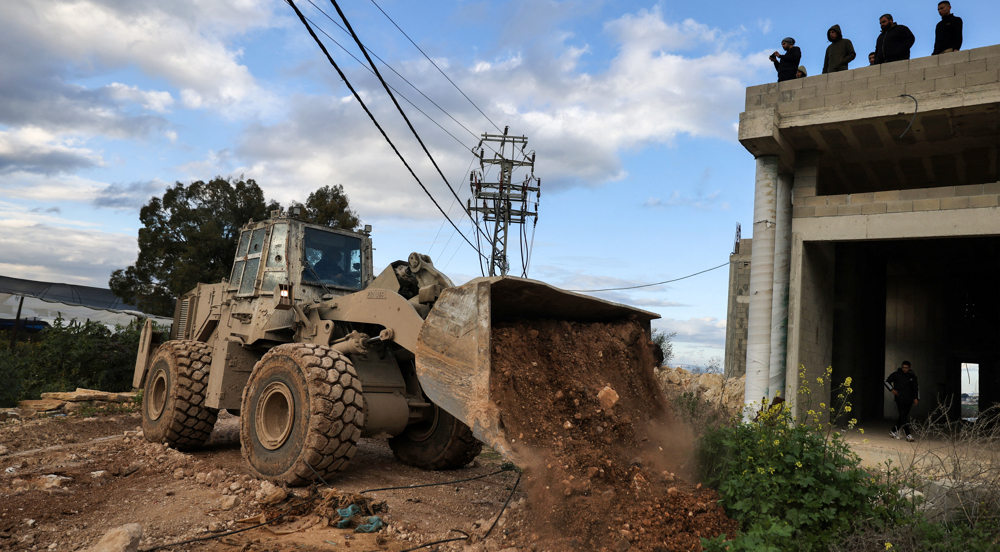
The Palestinian news agency WAFA reported that Israeli army and settler attacks persisted across the occupied West Bank on Monday and Tuesday at the time of filing this report, with Israeli apartheid forces continuing to target and abduct Palestinians, including children, throughout the territory.
In al-Khader town, located south of Bethlehem, several Palestinians suffered from suffocation during an Israeli army raid, while in Beita town, near Nablus, Israeli forces damaged Palestinian vehicles.
At least five Palestinians were arrested by Israeli troops across the West Bank on the same day.
Simultaneously, Israeli settlers, accompanied by regime forces, entered the courtyards of Al-Aqsa Mosque through the Al-Maghariba Gate, further aggravating tensions in the region.
Reports said on Tuesday that the occupation soldiers blew up the doors of the Imam Ali Mosque in the northern West Bank city of Nablus, confiscating the recordings of surveillance cameras installed there.
Since the start of Israel’s genocidal onslaught against Gaza in October 2023, Israeli forces have killed over 900 Palestinians in the occupied West Bank, as per conservative estimates.
What does Israel want in the West Bank?
Following explosions on empty buses near Tel Aviv on Thursday, Israeli Prime Minister Benjamin Netanyahu ordered the occupation military to execute an “intensive operation” in the West Bank.
No casualties were reported in the explosions, no group has claimed responsibility, and two Israeli settlers were arrested in connection with the incidents, raising suspicions that the attacks may have been orchestrated as "false flag operations" to justify an intensification of raids in the West Bank.
Recent reports from Israeli media sources suggest that the Israeli army intends to establish extensive corridors in Tulkarem and Jenin, reminiscent of the Netzarim Corridor in Gaza.
These corridors would permit unrestricted movement for Israeli occupation forces and heavy equipment, effectively splitting the occupied territory.
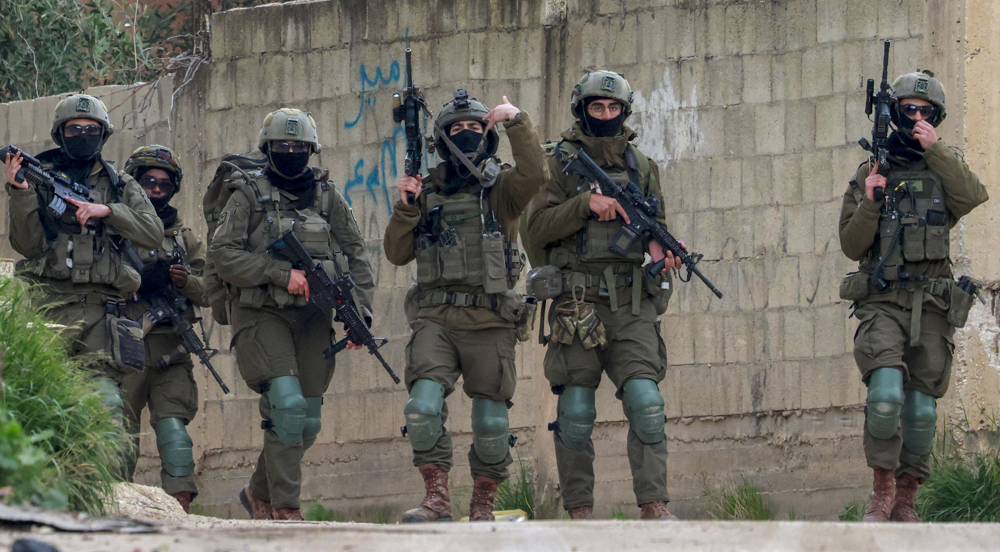
On Sunday, Israel’s minister of military affairs, Israel Katz, declared that the army had received instructions to maintain its presence in the northern occupied West Bank “to prevent the return of [Palestinian] residents.”
He said that soldiers are preparing for “a prolonged presence” in some refugee camps “for the next year,” in a provocative move that goes against international law and UN resolutions.
In response, Gaza-based resistance movement Hamas released a statement on Sunday, denouncing Katz’s remarks as “reckless delusions” that will inevitably fail.
“Our people and resistance are prepared to thwart all these schemes,” the group stated, underscoring that the deployment of tanks in the occupied West Bank reveals Israel’s intentions to escalate its genocidal war against the Palestinians.
“The deployment of tanks for the first time in years clearly exposes the enemy’s dangerous intent to escalate its genocidal war against our Palestinian people and continue its unprecedented campaign of destruction and devastation," the movement stated.
How is the US supporting Israel’s actions in West Bank?
Israel continues to breach international laws by forcibly displacing Palestinians and leaving a trail of destruction in the occupied West Bank, with the patronage of the US government.
The region is already fragmented by illegal Israeli settlements. Roughly 700,000 Israeli settlers are residing in at least 250 settlements and outposts in the occupied West Bank and East al-Quds, considered illegal under international law.
The occupied territory faces further challenges with the return of Donald Trump to the White House.
During his first term, Trump had already reversed long-standing US policy by recognizing al-Quds as the Israeli regime's capital and declaring that illegal Israeli settlements in the occupied West Bank would no longer be considered violations of international law.
Among the host of executive orders signed by Trump following his inauguration last month was the lifting of sanctions imposed on more than 30 illegal Israeli settler groups and entities by the administration of former President Joe Biden, days before his meeting with Netanyahu.
Israeli settler militias set fire to a Palestinian shack and vandalize it with racist graffiti east of Yatta, in the southern occupied West Bank.
— Palestine Highlights (@PalHighlight) February 24, 2025
Follow: https://t.co/U3DDExueps pic.twitter.com/j40LjcCOcr
Furthermore, his recent proposal to take over Gaza and forcefully displace its 2.3 million inhabitants abroad has only exacerbated tensions and elicited fears of another ethnic cleansing campaign.
Analysts believe that Trump’s return has emboldened supporters of “complete Israeli annexation” of the occupied West Bank, evidenced by statements issued by Trump's cabinet officials and aides.
Meanwhile, the introduction of bills in both the US House and Senate by Republican lawmakers to replace the term “West Bank” with “Judea and Samaria” in government documents and materials has fueled concerns that “annexation efforts” may be gaining momentum.
How is the world reacting to Israel’s West Bank offensive?
Pro-Palestinian activists across the globe have voiced their anger and concerns over the Israeli regime’s plans for “full annexation” of the occupied West Bank.
They criticize Israel’s Western allies for their silence in the face of mounting Israeli aggression.
Jeremy Corbyn, the former leader of the UK’s Labour Party, condemned Israel’s deployment of tanks in the occupied West Bank, saying that the development is a precursor to “full annexation” and a blatant disregard for the already fragile ceasefire agreement in the Gaza Strip.
“This is a prelude to full annexation, and makes a mockery of the ceasefire agreement that Israel continues to violate,” he wrote in a post on X on Sunday.
“We are witnessing ethnic cleansing — and our government’s ongoing failure to defend international law is utterly, utterly shameful,” he added.
According to Corbyn, a vocal pro-Palestine voice in the UK, economic sanctions and a full arms embargo are the only path to peace and an end to the occupation of Palestine.
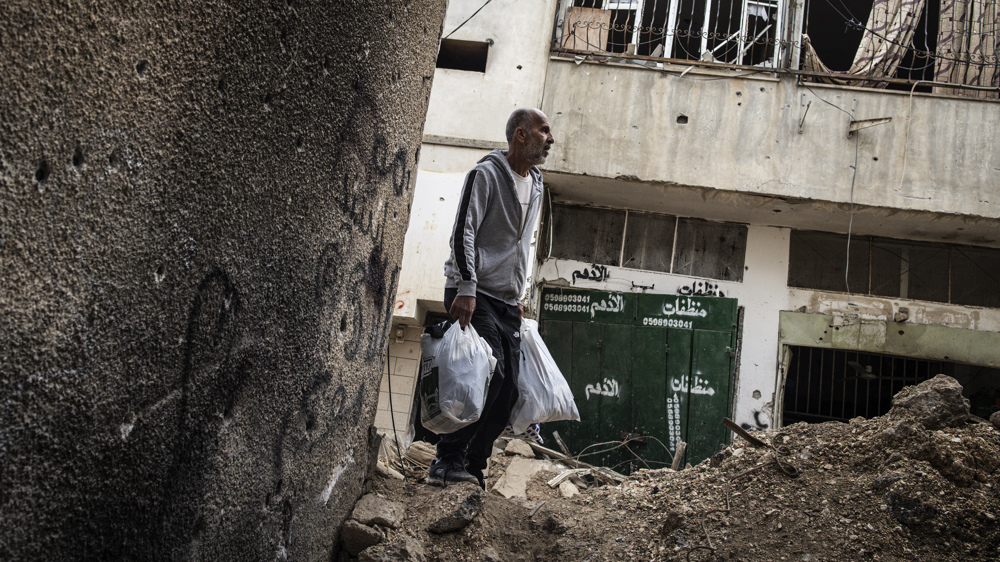
Assal Rad, a US-based scholar in West Asian history and social media user, also openly criticized Western media for “whitewashing” Israel’s military actions in the West Bank.
Drawing parallels to the Gaza war, where over 48,000 Palestinians have been killed in the past 15 months of the genocidal war, Rad asserted that Western media outlets have once again favored the Israeli narrative over the truth, uncritically disseminating Israeli lies.
“The Western narrative wants you to believe the people throwing stones at tanks invading their land are the bad guys, and the people in the tanks destroying their homes are acting in self-defense,” she wrote in one post on X.
“Western media is again manufacturing consent for Israel’s war crimes, now in the West Bank. Forcibly expelling people from their homes and preventing their return is called ETHNIC CLEANSING. They’re not being “evacuated” and Israel is “staying,” they’re illegally occupying,” Rad wrote in another post.
Mariam Barghouti, an American-Palestinian writer and journalist, also stated that framing the recent Israeli military offensive in the occupied West Bank as a unique event is misleading.
She noted that this is merely a repeat of past crimes but on a larger and more intensified scale.
“Everyone is repeating the same line ‘for the first time in two decades, Israeli tanks invade the West Bank,” she wrote, adding, “It’s being framed to suggest some element of surprise. When a more accurate report is that for the SECOND TIME in the last two decades, Israel is carrying out a large-scale lethal military offensive on the West Bank.”
“This is Israel repeating its crimes at a larger and more intensified scale, not some new development."
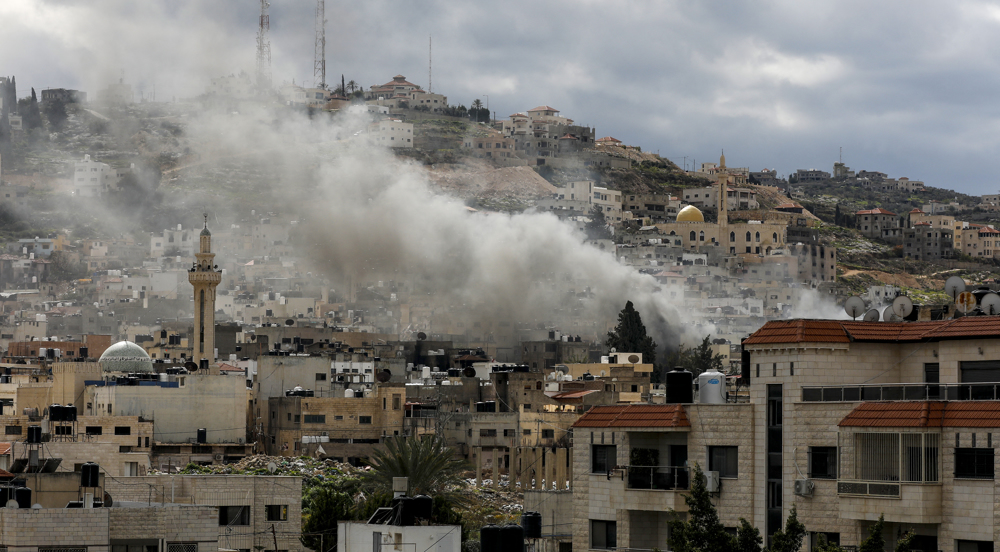
Hanan Ashrawi, a veteran Palestinian leader, legislator, activist, and scholar also highlighted Israel’s systematic ethnic cleansing and destruction of refugee camps in the northern occupied West Bank.
“The Israeli ethnic cleansing & destruction of the refugee camps in the north of the West Bank plus the assault on towns like Qabatiya, the forcible expulsion of the inhabitants declared permanent, the planned reinvasion by the occupation army with the threat of deploying tanks against civilians, are all the declared official policy of the genocidal Israeli government,” she wrote in a post on X.
Mark Seddon, Director of the Centre for United Nations Studies at the University of Buckingham, UK, decried the ongoing ethnic cleansing in the occupied West Bank and the silence from the West, as their inaction in response to these atrocities has become a common pattern throughout the years.
“Ethnic cleansing underway and many civilians, including children, killed by the IDF, in the occupied West Bank. The silence from the West is deafening. As usual,” he wrote.
Press TV's news headlines
Sudan’s mining sector suffers $7 billion loss amid ongoing civil war
Ansarullah slams Israel’s massacre in east Lebanon, urges unified Arab action
Iran resolved to uphold nation’s nuclear rights via diplomacy: FM Araghchi
The erasure of Palestinian cultural legacy by British Museum
American citizens have borne the ‘lion’s share’ of Trump’s tariff costs: Economist
$50m sportwashing: After turning blind eye to genocide for two years, FIFA funds Gaza stadiums
VIDEO | Trump’s foreign, domestic policies dealt blow after Supreme Court struck down global tariffs


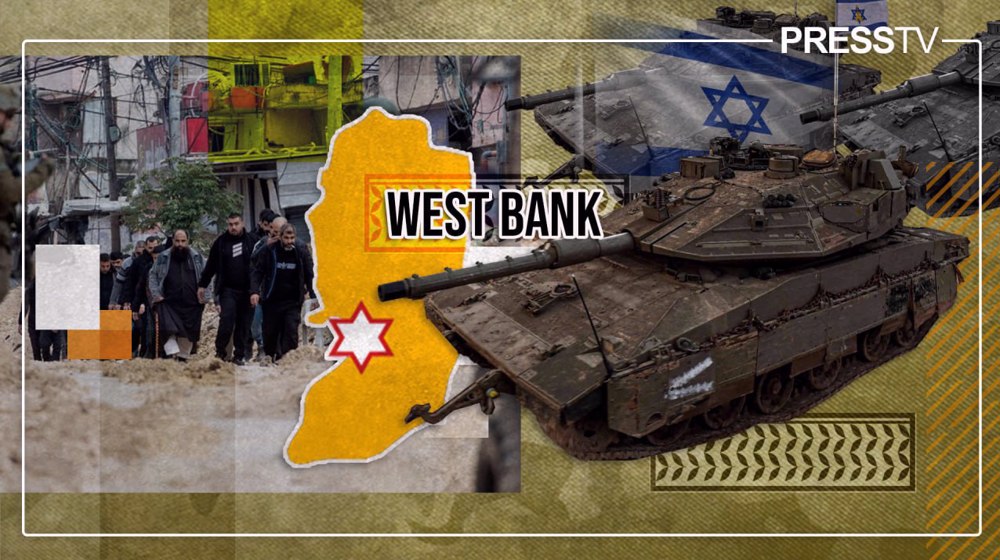
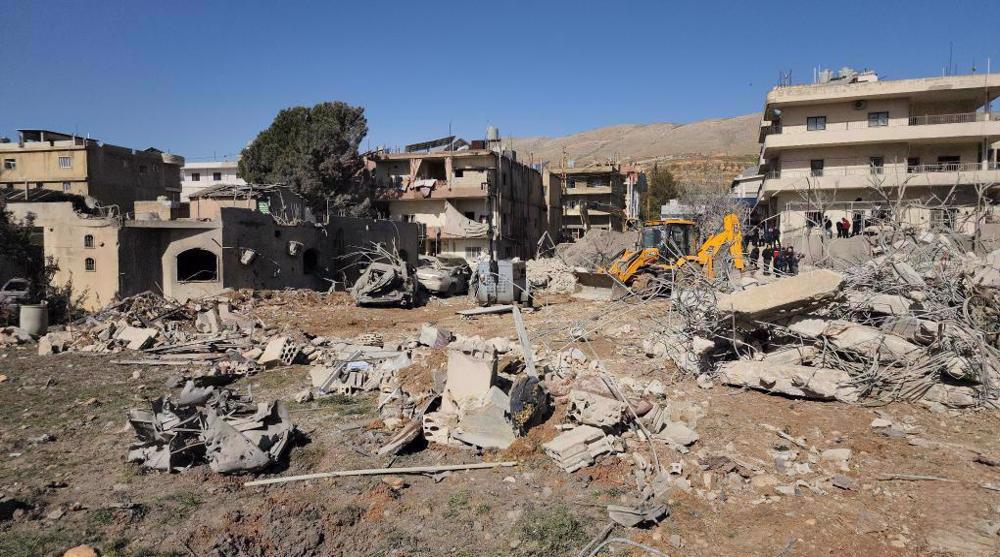
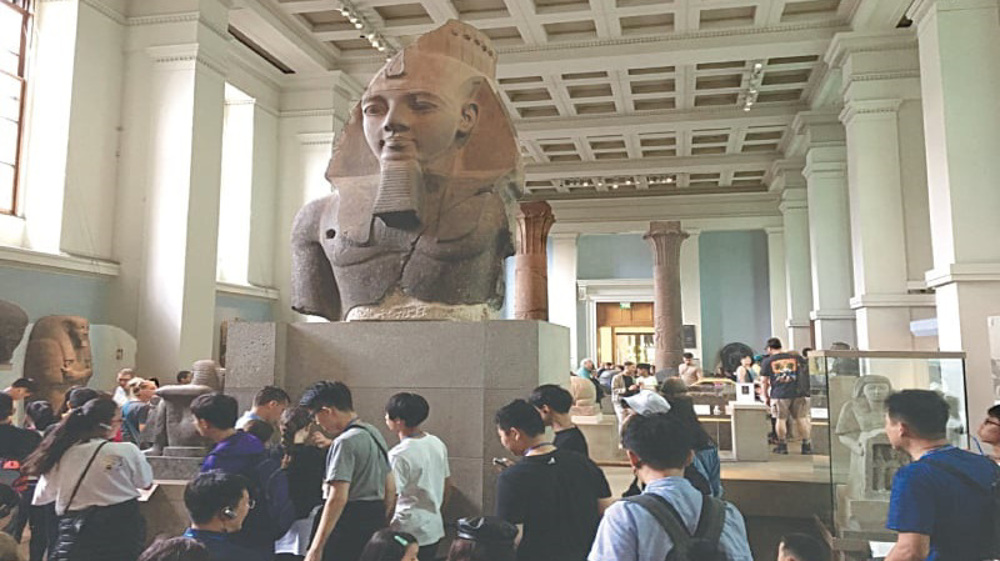
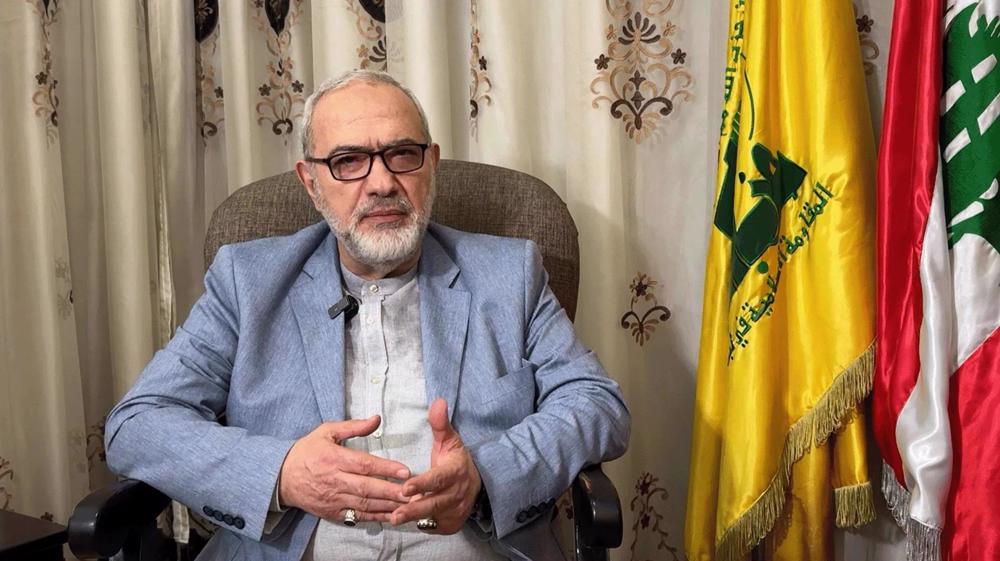



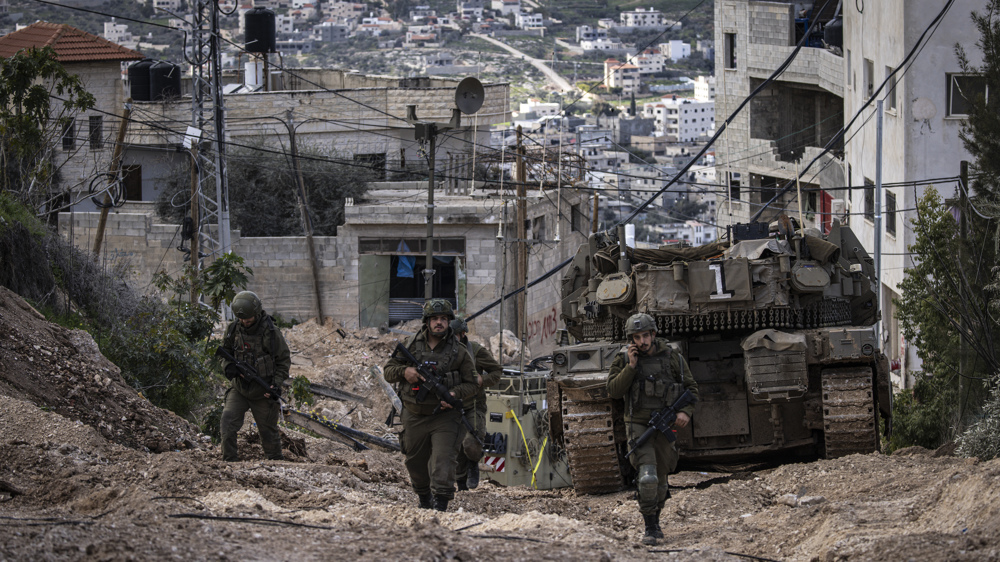
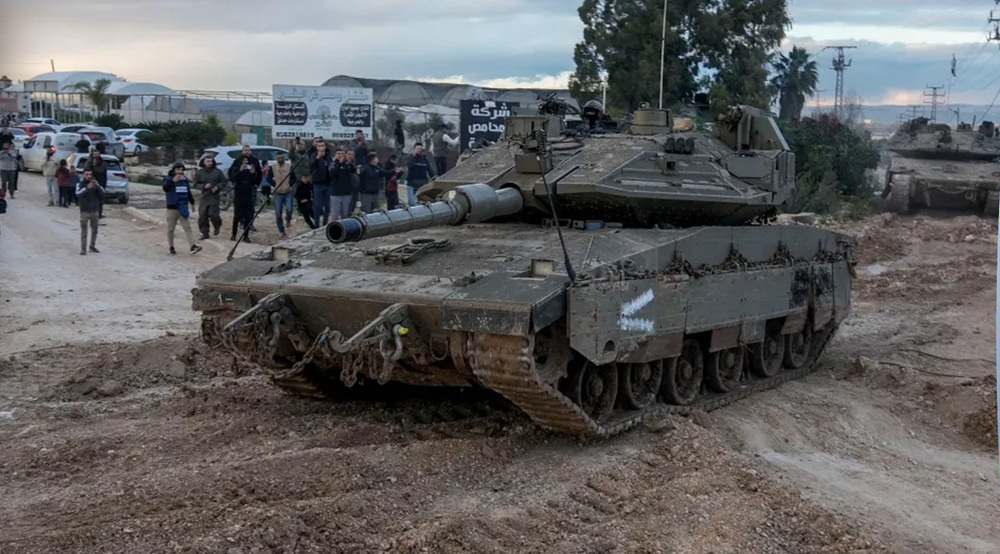
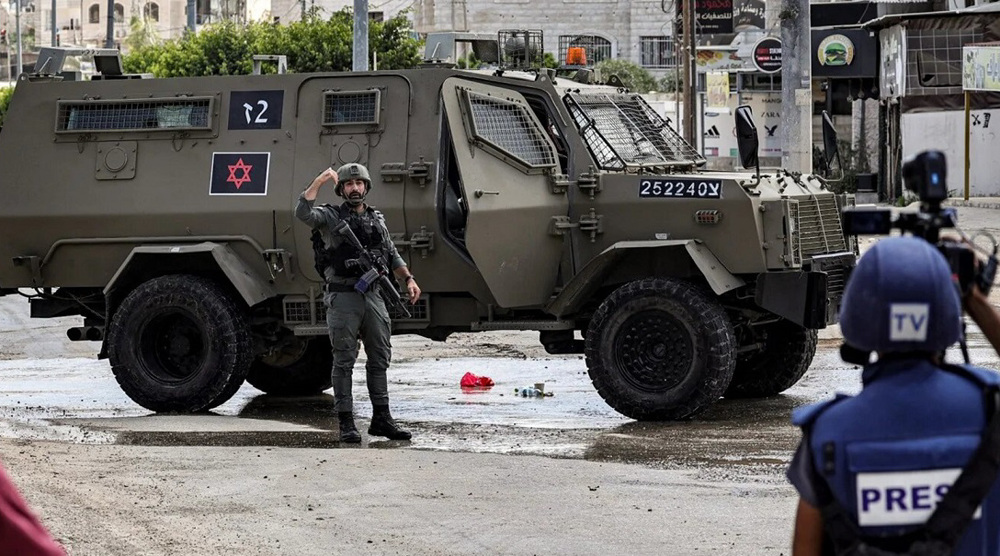
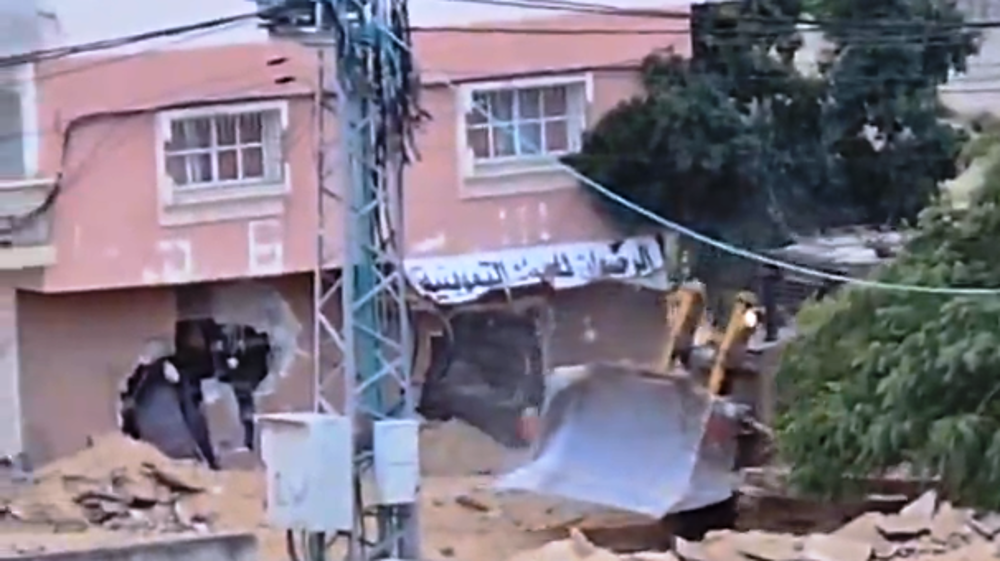
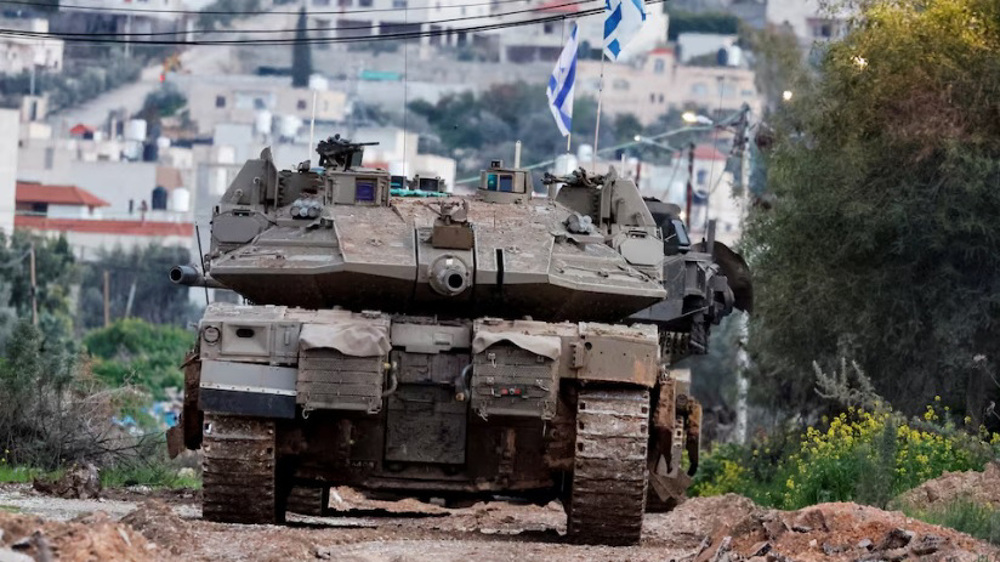
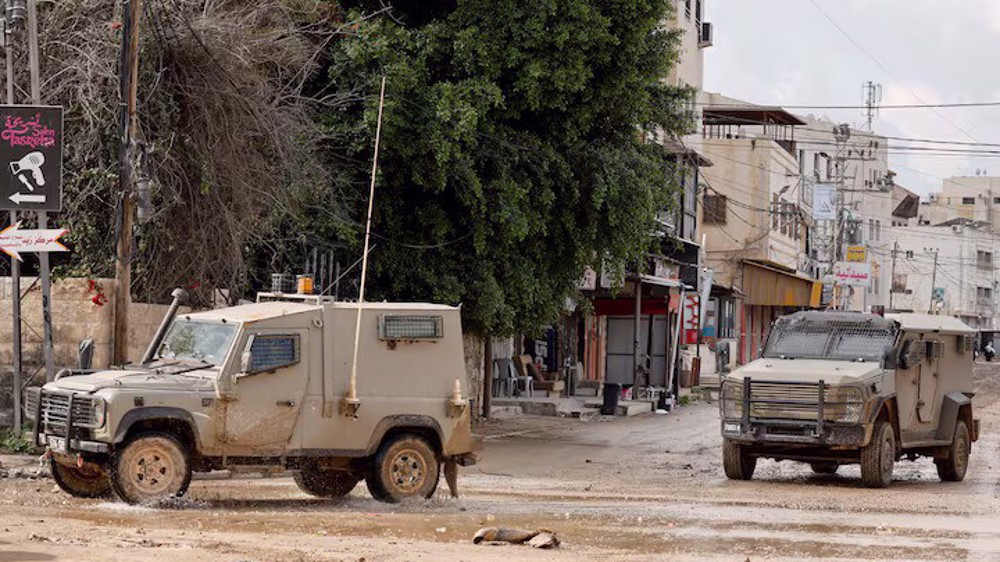
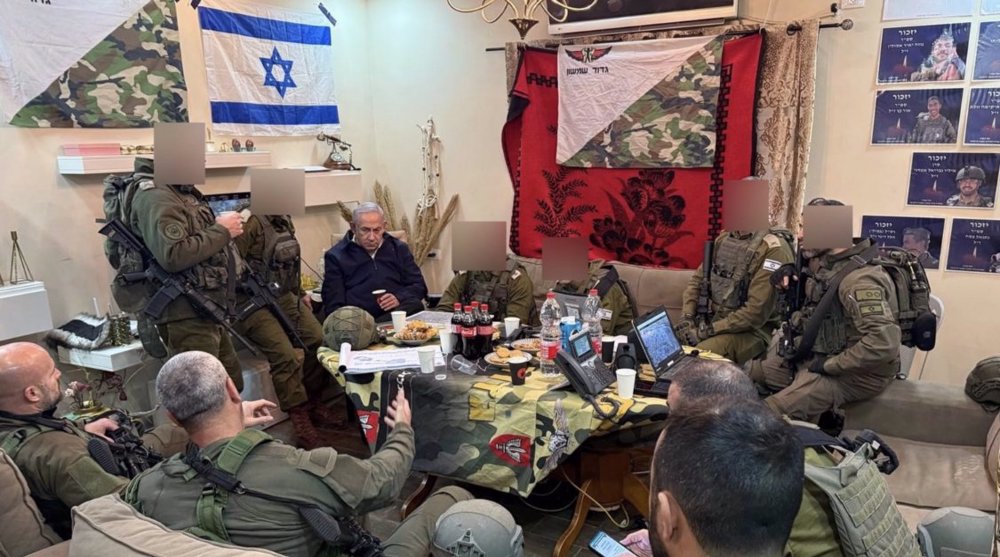
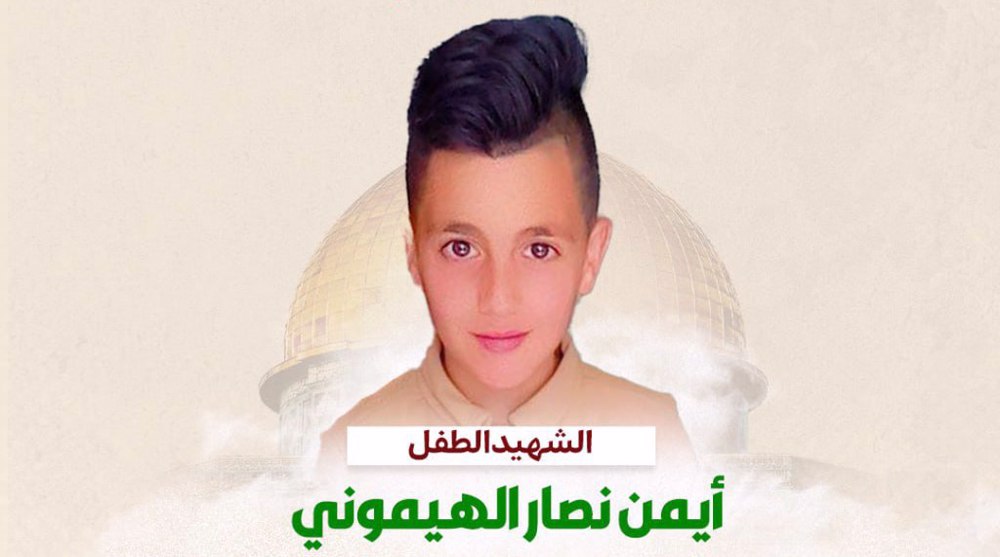
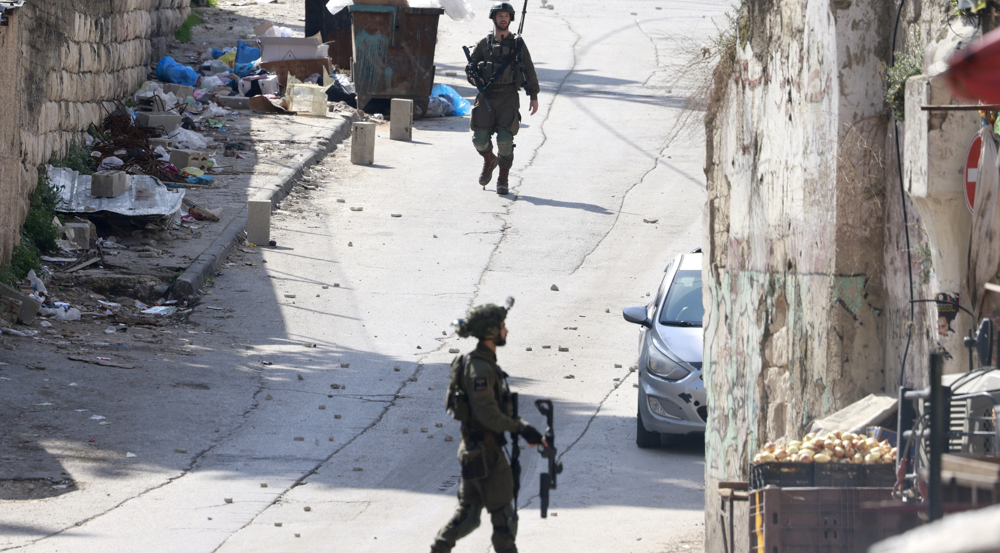
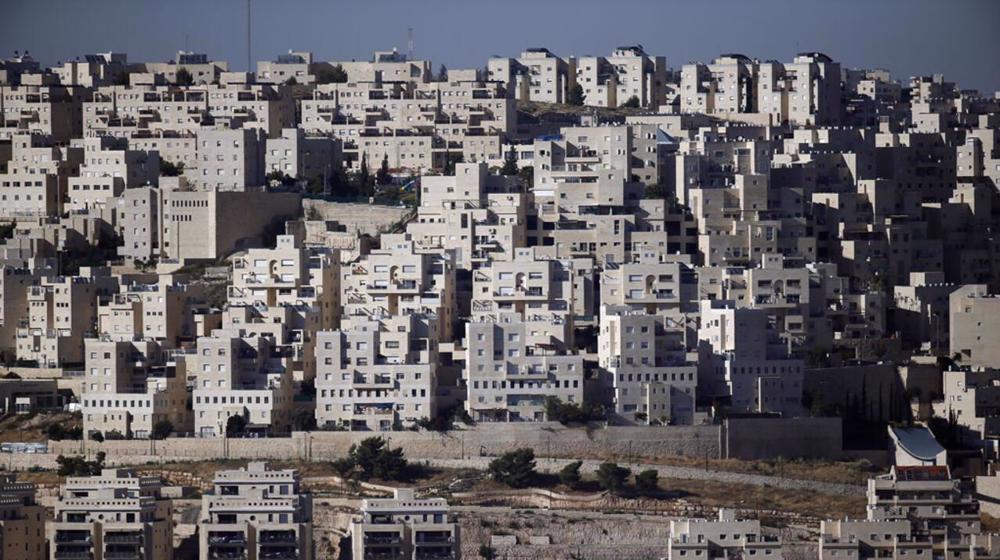

 This makes it easy to access the Press TV website
This makes it easy to access the Press TV website